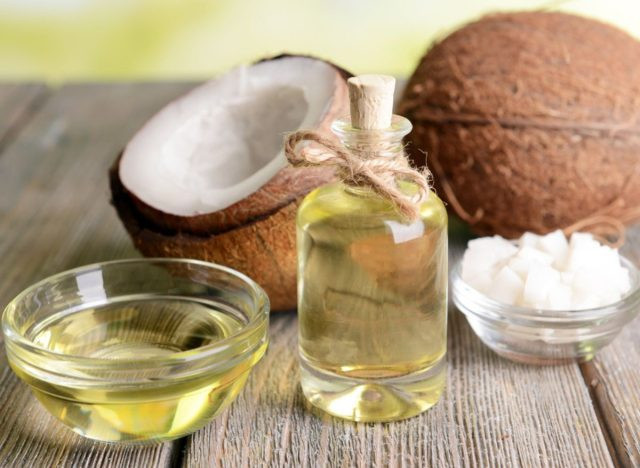Unhealthy cooking oils should be limited.
Not all cooking oils are created equal. Some oils taste better at high temperatures, while others are great in salad dressings.
Not all cooking oils are created equal. The composition and production method will determine the quality of each cooking oil. However, the recipe is not the only factor that determines which oil you should use. Different oils have different nutritional compositions that create their own characteristics, making them either good or bad for your health.
Although they share similar calorie content (about 120 calories per tablespoon), cooking oils vary in their nutritional composition, especially their fat content. While some are higher in unsaturated fat, others are higher in saturated fat. Even within the unsaturated fat category, different types of fat, such as monounsaturated and polyunsaturated, help determine how beneficial an oil is to your health.
1. Some types of cooking oils are not good for your health and you should limit them:
- Palm oil should not be used in cooking.
Palm oil is high in saturated fat, which is thought to have a negative impact on blood cholesterol levels and increase the risk of heart disease.
Some recent studies have questioned exactly how bad saturated fats are for your health, but they certainly don’t have the same benefits as unsaturated fats, so you should consider limiting palm oil in your diet.
While using a single oil in cooking is unlikely to lead to significant health problems, it is still a cause for concern. Many people do not cook with palm oil at home, but it is often found in processed foods such as cakes, pizza crusts and biscuits.

- Corn oil
Another commonly used vegetable oil, corn oil is most commonly used for deep frying. Corn oil is best known in the culinary industry for its very high smoke point of around 232 degrees Celsius, making it suitable for high-temperature cooking.
While corn oil does contain some vitamin E, it does have some potential downsides. Its high omega-6 content is one of the biggest concerns, especially since it doesn’t offer significant health benefits beyond that omega-6 concentration.

Corn oil has a 46:1 omega-6/omega-3 ratio, resulting in a huge imbalance of two essential fatty acids. This imbalance has been shown to lead to chronic inflammation—the root cause of chronic diseases like heart disease, obesity, diabetes, and even cancer. Additionally, most corn oil is made with genetically modified (GMO) corn, and studies show that GMO crops can contribute to allergies and food sensitivities.
- Hydrogenated vegetable oil
Hydrogenated vegetable oil is not found naturally; instead, it is produced by adding hydrogen molecules to liquid oils, turning them into a more solid form with an extended shelf life. While this process may improve texture, it also creates trans fats, which have been shown to have adverse effects on heart health and potentially increase the risk of various diseases and conditions.

Margarine and products containing these ingredients are typical sources of trans fats. Reducing your consumption of such items can significantly reduce your trans fat intake, promoting a healthier diet.
- Coconut oil
Although this oil has grown in popularity over the past decade, there are several reasons why you may want to limit your use of coconut oil in cooking. Coconut oil is high in saturated fat, which makes it less ideal than other oils. While saturated fat may not be completely negative for your health, you should still consider limiting it in your diet because it does not provide any notable health benefits.

For example, one study found that consuming coconut oil led to higher levels of both LDL and HDL cholesterol. While increasing HDL cholesterol may be beneficial, it does not counteract the risk of heart disease that may be associated with increased LDL cholesterol. Because of the conflicting research on coconut oil, it is best to limit your intake and instead choose oils with known health benefits more often.
2. How to use cooking oil for health benefits
In addition to choosing the right oil, you also need to note that using oil to fry food over and over again at high temperatures will cause the oil to oxidize, creating substances that are harmful to health. The higher the oil temperature and the more times the used oil is used, the more toxic substances are produced, which can easily cause cancer in the long run.
To prevent toxic substances from cooking oil, when frying, you need to control the temperature, not exceeding 150-180 degrees Celsius, which means you must not let the oil smoke. If the oil has black smoke, you should throw it away and replace it with new oil. It is best not to reuse oil that has been used many times.
According to Dr. Truong Hong Son, Director of the Vietnam Institute of Applied Medicine, there should be two types of cooking oil in the kitchen: cooking oil for frying and cooking oil for stir-frying and marinating. If used for frying, use cooking oil because it can withstand high temperatures when cooking./.



